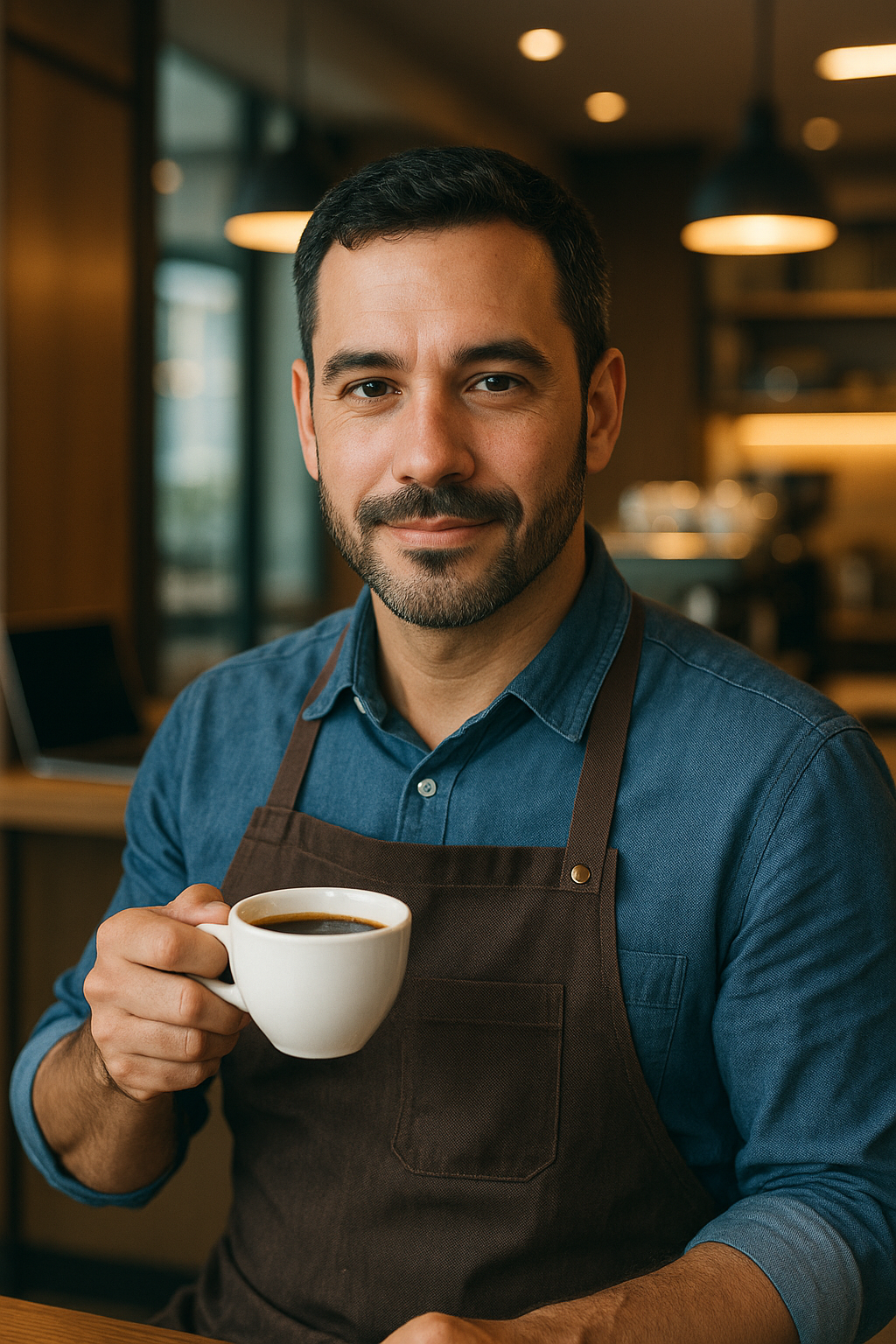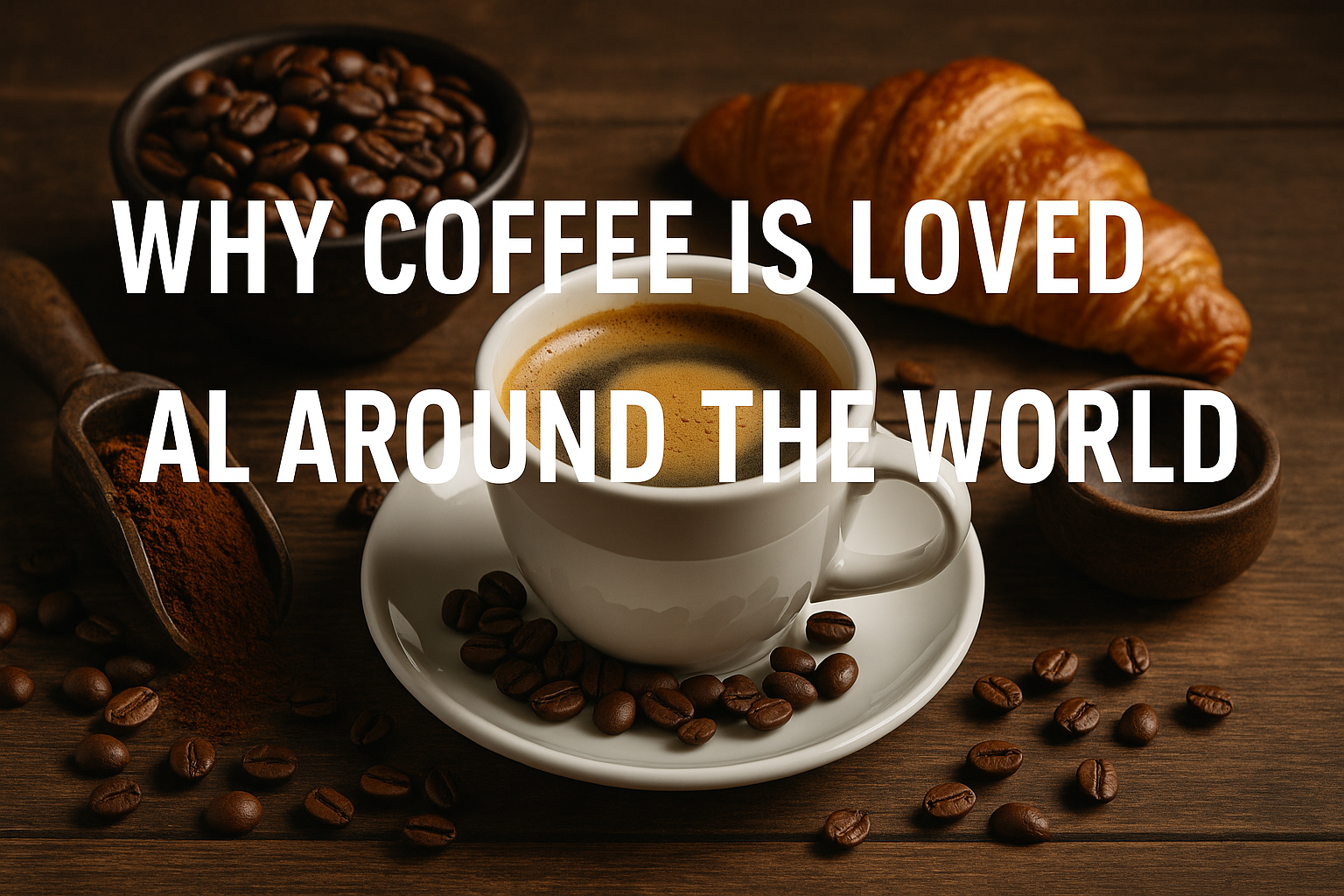Coffee is more than a beverage—it’s a ritual, a cultural icon, and a daily necessity for billions of people across the globe. From the bustling cafés of Paris to the cozy coffeehouses of Istanbul, coffee has embedded itself into the fabric of society.
But what makes coffee so universally loved? In this article, we’ll explore the deep-rooted appeal of coffee, not just as a drink, but as a global experience.
A Brief Look Into Coffee’s Global Appeal
Coffee has been consumed for centuries, with its origins traced back to ancient Ethiopia. From there, it spread to the Middle East, then to Europe, and eventually the entire world. As it traveled, it took on different forms, meanings, and cultural expressions.
In Italy, espresso is a quick ritual; in Sweden, the “fika” tradition involves coffee and pastries during a relaxing social break; in Brazil, it’s a symbol of hospitality. Across the world, coffee connects people—bridging cultures, sparking conversations, and fueling creativity.
The Science Behind Coffee’s Addictive Aroma
One of the reasons people gravitate toward coffee is its unmistakable aroma. When you grind fresh coffee beans or brew a cup, hundreds of compounds are released. These volatile molecules create the characteristic smell that signals alertness and comfort.
Among these compounds is 2-furfurylthiol, which gives coffee its roasted, nutty scent. Research shows that this aroma activates parts of the brain associated with pleasure and memory, making coffee more than just a taste—it’s an emotional experience.
Coffee and Social Rituals: More Than a Drink
Coffee plays a central role in many social rituals. From business meetings to romantic dates, a cup of coffee often serves as a neutral, comforting starting point. It helps people bond, take breaks, and connect.
In many Middle Eastern countries, serving coffee is an act of hospitality and respect. In Ethiopia, traditional coffee ceremonies involve roasting beans, grinding, and brewing in front of guests—a ritual of inclusion and community.
Coffee is also synonymous with productivity. Office culture across the globe often includes coffee breaks that boost morale and foster informal communication between coworkers.
Coffee Across Cultures
Here’s a look at how coffee is embraced in different parts of the world:
- Italy: Espresso is enjoyed standing at a bar. It’s fast, strong, and part of daily life. Cappuccinos are typically only consumed in the morning.
- Japan: Coffee culture includes canned coffee from vending machines and intricate hand-drip brewing in cafés.
- Turkey: Turkish coffee is thick, sweet, and unfiltered. It’s often served with a glass of water and a piece of Turkish delight.
- Ethiopia: The birthplace of coffee. Drinking coffee is a ceremonial affair, with traditional brewing and incense.
- United States: Home to large-scale coffee chains and a growing third-wave movement focused on quality and sustainability.
Emotional and Psychological Comfort
Coffee has psychological effects beyond the physical caffeine boost. The routine of making coffee in the morning or sitting with a warm mug can create a sense of stability. It marks the start of the day, a break in a hectic schedule, or a pause to reflect.
A study published in the journal Appetite found that even the smell of coffee can reduce stress and increase alertness in sleep-deprived individuals. For many, it’s more than caffeine—it’s a moment of peace.
Economic and Cultural Influence
Globally, coffee is a multi-billion-dollar industry. Over 2 billion cups are consumed each day. It supports millions of farmers, roasters, café owners, and baristas.
But beyond its economic weight, coffee carries symbolic power. It represents lifestyle, class, taste, and awareness. Third-wave coffee culture, which emphasizes traceability, sustainability, and artisan preparation, has transformed coffee into a thoughtful act, not just a habit.
The Role of Coffee in Innovation and Creativity
From artists to entrepreneurs, many credit coffee as a catalyst for creativity. J.K. Rowling reportedly spent hours in cafés writing Harry Potter. Pablo Picasso was a regular at Parisian coffee shops, discussing art and politics with other creatives.
Coffee shops have historically been places of revolution and innovation. In 17th-century England, coffee houses were nicknamed “penny universities” because for the price of a cup, one could engage in intellectual debate and learn from others.
Today, that tradition lives on. Freelancers, students, and remote workers use cafés as workspaces, drawn by the energy of others and the comforting hum of espresso machines.
Why the Ritual Matters
The act of preparing coffee can be meditative. Grinding beans, boiling water, and brewing is a sensory experience. Whether it’s a simple drip brew or a precise pour-over, the ritual creates a moment of mindfulness.
In a world that often feels rushed and chaotic, the coffee ritual offers a few minutes of calm—a time to pause, prepare, and ground oneself before diving into the demands of the day.
Coffee as a Symbol of Identity
For many, coffee is part of their identity. Preferences—espresso vs. cold brew, black vs. sweetened—say something about personality. The rise of specialty coffee culture has turned coffee into a hobby, much like wine or craft beer.
People visit cafés not just for caffeine, but for the experience. They seek out rare beans, experiment with brewing techniques, and post photos of latte art on social media. Coffee becomes an extension of personal taste and values.
Conclusion: A Universal Experience
So, why is coffee loved all around the world? Because it’s more than a drink. It’s a companion during lonely mornings, a facilitator of conversations, a source of comfort, and a link to tradition. It adapts to culture, lifestyle, and personality.
Coffee unites people. It invites us to slow down, to savor, to share. That universal appeal—emotional, cultural, psychological, and sensory—is what makes coffee one of the most beloved beverages on Earth.

Marcelo Oliveira is a coffee enthusiast and content creator specializing in barista skills, brewing methods, equipment reviews, coffee-related health insights, and fascinating curiosities from the coffee world. With a deep passion for every step of the brewing process, he turns technical knowledge into accessible and engaging content for both beginners and seasoned coffee lovers. Marcelo’s goal is to help readers appreciate the full experience of coffee—from bean to cup.
